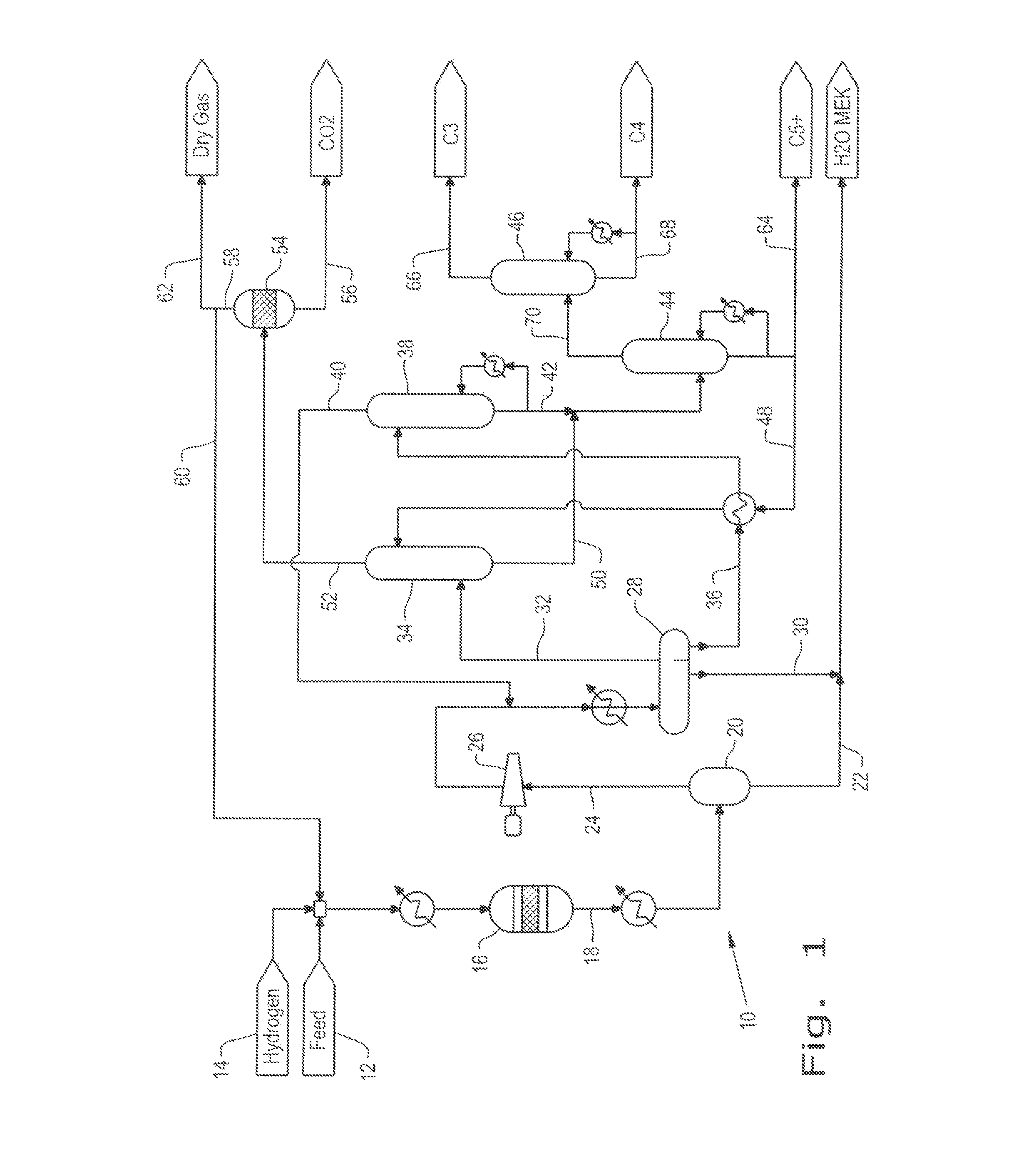Renewable olefins from a mixture of acetic acid and propionic acid
a technology of acetic acid and propionic acid, which is applied in the direction of metal/metal-oxide/metal-hydroxide catalyst, hydrocarbon preparation catalyst, etc., to achieve the effect of improving the impact resistance of polystyren
- Summary
- Abstract
- Description
- Claims
- Application Information
AI Technical Summary
Benefits of technology
Problems solved by technology
Method used
Image
Examples
examples
[0095]Commercial zirconium hydroxide was dried at 120 degrees Celsius for more than 5 hours. A calculated amount of Zn(NO3)2 (from Sigma-Aldrich, more than 99.8 percent purity) was dissolved in water, forming a clear solution. The dried zirconium hydroxide (which was also from Sigma-Aldrich, more than 99.8 percent purity) was then mixed with the solution by incipient wetness, in order to form wet powders impregnated with Zn. The wetted powder was then dried at 80 degrees Celsius for 4 hours, followed by calcination at 550 degrees Celsius for 3 hours, to obtain a Zn1Zr10Oz catalyst by the incipient wetness impregnation method of the '312. application.
[0096]The catalyst thus prepared was then placed in a fixed-bed stainless steel reactor having an inside diameter of 5 millimeters, with from 100-800 mg of the catalyst being packed between quartz wool beds. A thermocouple was placed in the middle of the catalyst bed to monitor the reaction temperature. Before beginning the reaction, the...
PUM
| Property | Measurement | Unit |
|---|---|---|
| Percent by mass | aaaaa | aaaaa |
| Percent by mass | aaaaa | aaaaa |
| Percent by mass | aaaaa | aaaaa |
Abstract
Description
Claims
Application Information
 Login to View More
Login to View More - R&D
- Intellectual Property
- Life Sciences
- Materials
- Tech Scout
- Unparalleled Data Quality
- Higher Quality Content
- 60% Fewer Hallucinations
Browse by: Latest US Patents, China's latest patents, Technical Efficacy Thesaurus, Application Domain, Technology Topic, Popular Technical Reports.
© 2025 PatSnap. All rights reserved.Legal|Privacy policy|Modern Slavery Act Transparency Statement|Sitemap|About US| Contact US: help@patsnap.com

